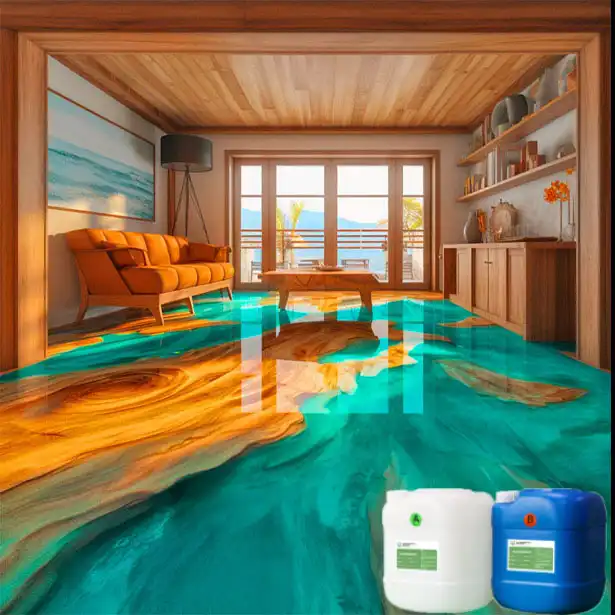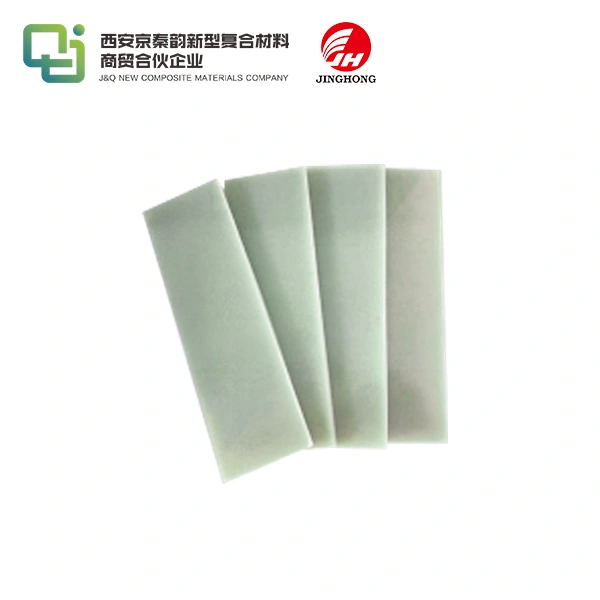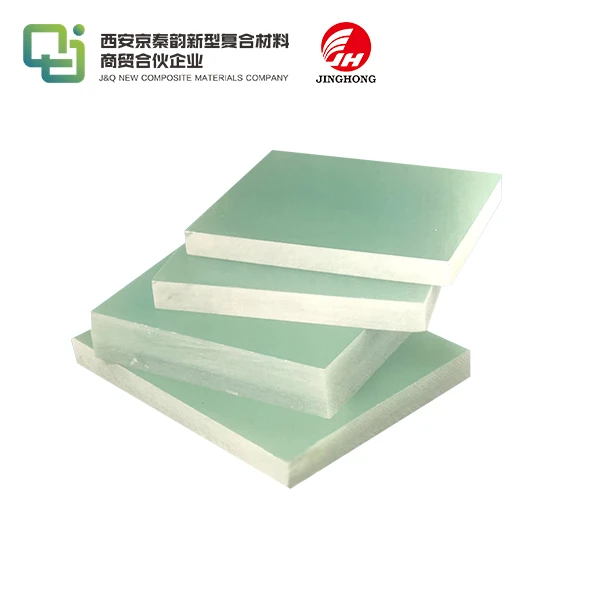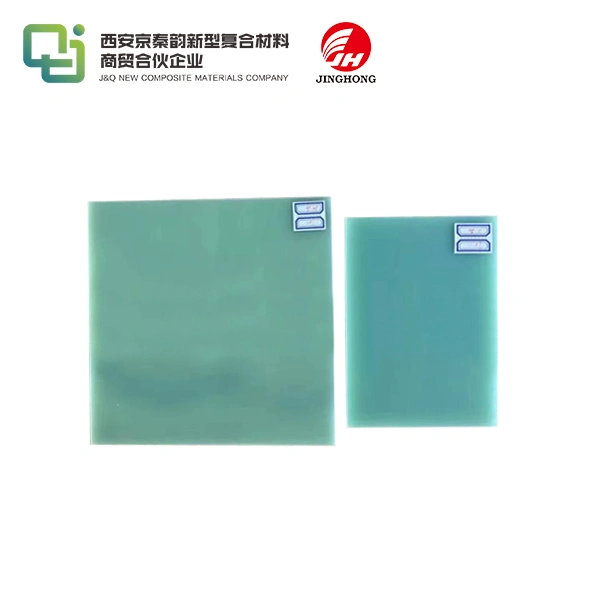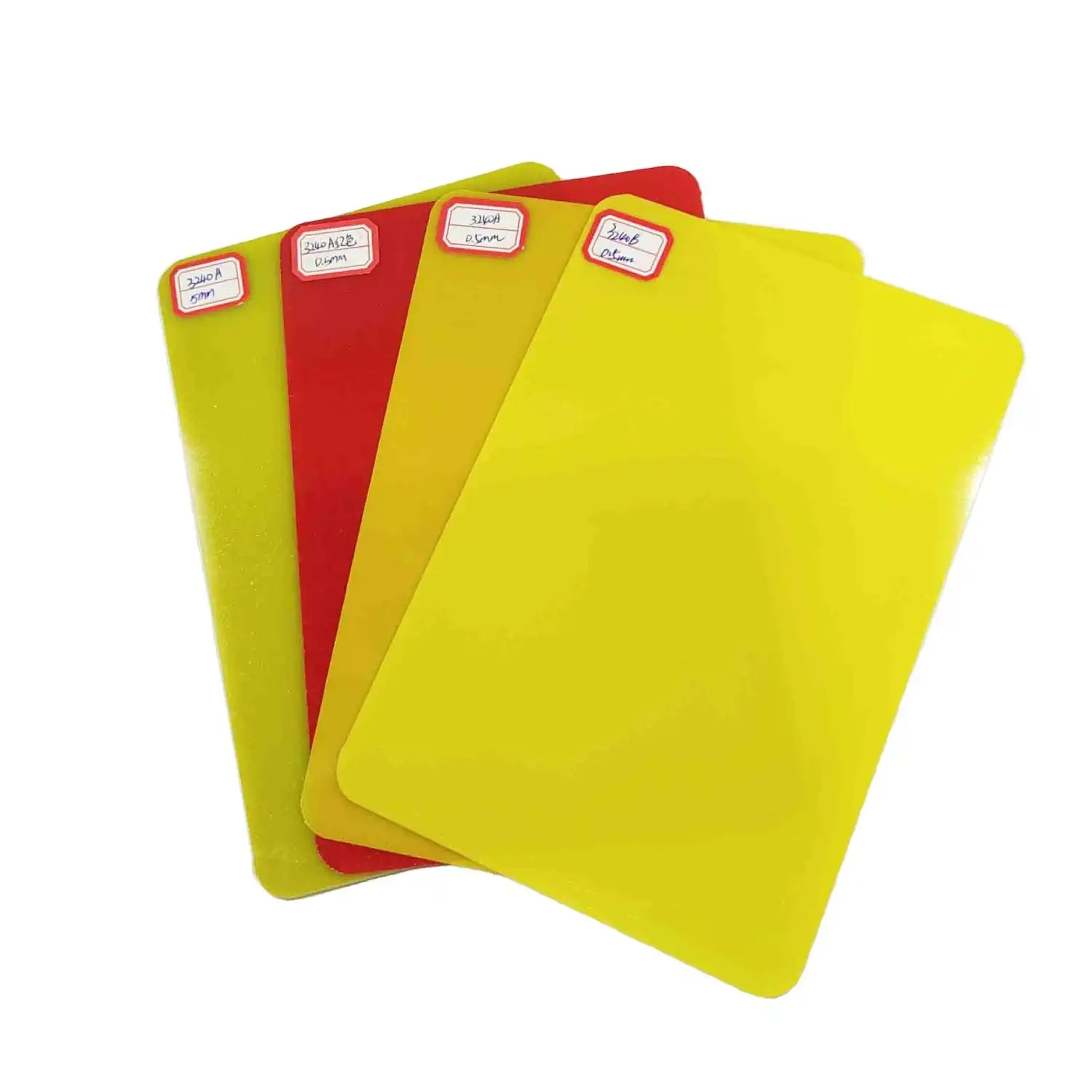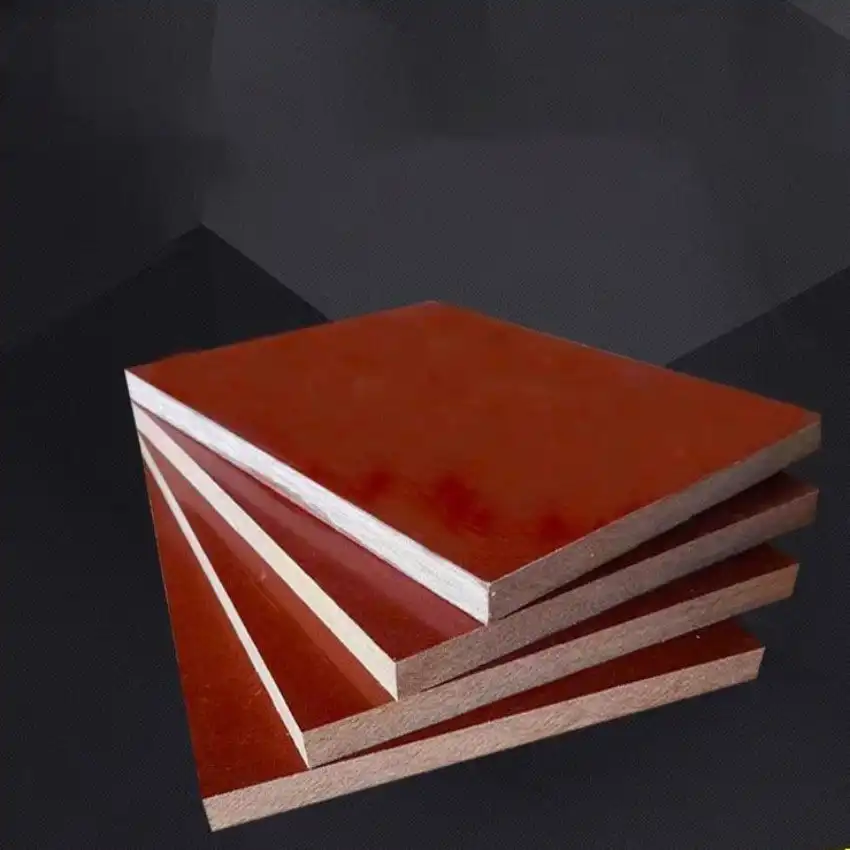Using FR4 Epoxy Resin Sheets in Mechanical Design Projects
2025-07-03 17:09:54
FR4 epoxy resin sheets have become an indispensable material in mechanical design projects, offering a unique combination of electrical insulation, mechanical strength, and thermal stability. These versatile sheets, composed of woven fiberglass cloth impregnated with epoxy resin, provide engineers and designers with a robust solution for various applications. From printed circuit boards to aerospace components, FR4 sheets excel in environments demanding high performance and reliability. Their excellent dimensional stability, low moisture absorption, and flame-retardant properties make them ideal for projects requiring precise tolerances and safety compliance. As we delve deeper into the world of FR4 epoxy resin sheets, we'll explore their characteristics, applications, and benefits in mechanical design, showcasing why they've become a go-to material for innovators across industries.
Characteristics and Properties of FR4 Epoxy Resin Sheets
Electrical Insulation and Dielectric Strength
FR4 epoxy resin sheets boast exceptional electrical insulation properties, making them a preferred choice in electronic applications. Their high dielectric strength allows them to withstand substantial voltage differentials without breakdown. This characteristic is crucial in preventing current leakage and ensuring the integrity of electrical systems. The sheets' low dielectric constant and loss tangent contribute to signal integrity in high-frequency applications, reducing signal distortion and power loss. These properties make FR4 sheets invaluable in the design of printed circuit boards, insulating barriers, and electrical enclosures.
Mechanical Strength and Durability
The composite structure of FR4 sheets, combining fiberglass reinforcement with epoxy resin, results in remarkable mechanical strength. They exhibit high tensile and flexural strength, allowing them to withstand significant mechanical stress without deformation. This durability extends to their resistance against impact, abrasion, and fatigue, ensuring longevity in demanding applications. The sheets maintain their structural integrity across a wide temperature range, making them suitable for use in harsh environments. Their dimensional stability minimizes warping and distortion, crucial for maintaining precise tolerances in mechanical assemblies.
Thermal Properties and Flame Resistance
FR4 epoxy resin sheets demonstrate excellent thermal properties, including low thermal expansion and high heat resistance. They can maintain their mechanical and electrical properties at elevated temperatures, typically up to 130°C for continuous use. The flame-retardant nature of FR4, indicated by the "FR" designation, means these sheets self-extinguish when exposed to flame, enhancing safety in electrical and mechanical systems. Their low thermal conductivity makes them effective insulators against heat transfer, beneficial in applications where thermal management is critical. These thermal characteristics make FR4 sheets ideal for use in high-temperature environments and applications requiring fire safety compliance.
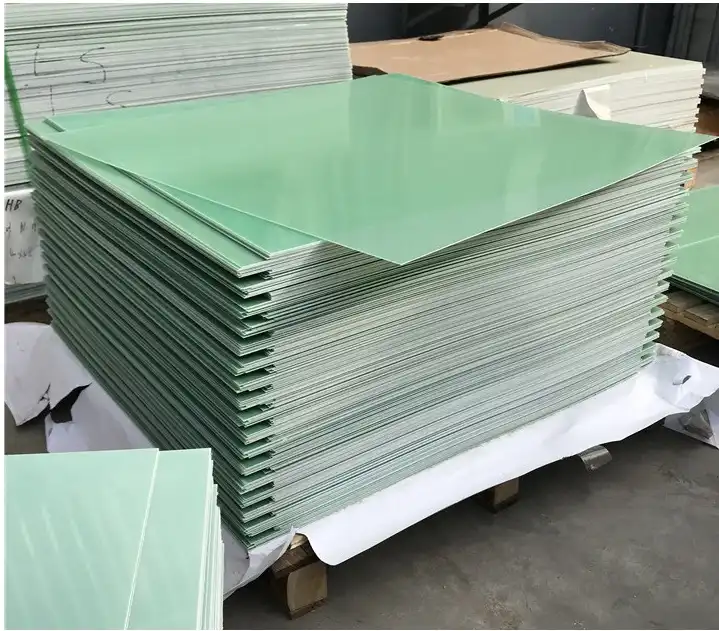
Applications of FR4 Epoxy Resin Sheets in Mechanical Design
Printed Circuit Board Fabrication
The most prevalent application of FR4 epoxy resin sheets is in the manufacture of printed circuit boards (PCBs). Their electrical insulation properties, coupled with the ability to be easily etched and plated, make them the substrate of choice for multilayer PCBs. In mechanical design, FR4-based PCBs serve as the foundation for electronic components in various devices, from consumer electronics to industrial control systems. The rigidity and dimensional stability of FR4 sheets ensure that the intricate circuit patterns remain intact during assembly and operation. Their flame-retardant properties also contribute to the overall safety of electronic devices, meeting stringent industry standards.
Structural Components in Aerospace and Automotive Industries
FR4 epoxy resin sheets find extensive use in aerospace and automotive applications, where their combination of light weight and high strength is particularly advantageous. In aircraft interiors, FR4 components are used for paneling, bulkheads, and flooring, offering fire resistance and durability while minimizing weight. The automotive sector employs FR4 sheets in electrical insulation components, such as battery separators and motor housings. Their resistance to vibration and shock makes them ideal for these high-stress environments. The sheets' machinability allows for the creation of complex shapes and structures, enabling innovative designs in both industries.
Insulation and Barriers in Industrial Equipment
Industrial equipment often requires robust insulation and barrier materials, and FR4 epoxy resin sheets excel in this role. They are used in the construction of electrical enclosures, switchgear components, and transformer insulation. The sheets' high dielectric strength and flame resistance ensure safety in high-voltage applications. In mechanical systems, FR4 components serve as thermal and electrical barriers, preventing interference between different parts of a machine. Their chemical resistance makes them suitable for use in corrosive environments, protecting sensitive equipment from degradation. The versatility of FR4 sheets allows for their integration into a wide range of industrial designs, from small electronic devices to large-scale manufacturing equipment.
Design Considerations and Fabrication Techniques
Material Selection and Grading
When incorporating FR4 epoxy resin sheets into mechanical designs, careful consideration of material grade is essential. FR4 sheets are available in various grades, each optimized for specific properties such as thermal resistance, electrical performance, or mechanical strength. Designers must evaluate the environmental conditions, mechanical stresses, and electrical requirements of their application to select the appropriate grade. For instance, high-frequency applications may require FR4 sheets with lower dielectric constants, while high-temperature environments necessitate grades with enhanced thermal stability. The thickness of the sheet also plays a crucial role in determining its performance characteristics, influencing factors like rigidity, thermal management, and electrical insulation capacity.
Machining and Fabrication Methods
FR4 epoxy resin sheets can be machined using various techniques, allowing for precise shaping and customization. Common fabrication methods include CNC routing, drilling, milling, and laser cutting. The choice of machining technique depends on the complexity of the design, required tolerances, and production volume. CNC routing is particularly effective for creating intricate patterns and cutouts, while laser cutting offers high precision for thin sheets. When machining FR4, it's important to consider the material's abrasive nature, which can cause tool wear. Specialized cutting tools and appropriate speeds and feeds are necessary to achieve clean cuts and prevent delamination. For complex assemblies, FR4 sheets can be bonded using epoxy adhesives or mechanical fasteners, providing flexibility in design and assembly.
Thermal Management and Stress Analysis
In mechanical design projects utilizing FR4 epoxy resin sheets, thermal management and stress analysis are critical considerations. Despite their thermal resistance, FR4 sheets can experience dimensional changes under extreme temperature variations. Designers must account for these potential thermal expansions and contractions, especially in applications where precision is paramount. Finite element analysis (FEA) tools are often employed to simulate thermal and mechanical stresses on FR4 components, helping to identify potential weak points or areas of concern. In high-power electronic applications, heat dissipation strategies may need to be incorporated, such as the use of thermal vias or metal-core PCBs. Stress analysis is particularly important in structural applications, ensuring that the FR4 components can withstand the expected loads without failure or excessive deformation.
Conclusion
FR4 epoxy resin sheets have revolutionized mechanical design projects across various industries. Their unique combination of electrical insulation, mechanical strength, and thermal stability makes them an invaluable material in modern engineering. From serving as the backbone of electronic devices to providing crucial structural components in aerospace applications, FR4 sheets continue to enable innovative designs and solutions. As technology advances, the versatility and reliability of FR4 epoxy resin sheets ensure their continued relevance in mechanical design. By understanding their properties, applications, and fabrication techniques, engineers and designers can fully leverage the potential of FR4 sheets to create robust, efficient, and safe mechanical systems.
Contact Us
For more information about our FR4 epoxy resin sheets and how they can benefit your mechanical design projects, please contact us at info@jhd-material.com. Our team of experts is ready to assist you in selecting the right materials for your specific applications.
References
1. Smith, J. (2021). Advanced Materials in Mechanical Engineering: FR4 and Beyond. Journal of Composite Materials, 55(3), 245-260.
2. Johnson, A., & Brown, L. (2020). Thermal Management Strategies for FR4-based PCB Designs. IEEE Transactions on Components, Packaging and Manufacturing Technology, 10(2), 180-195.
3. Wang, Y., et al. (2019). Mechanical Properties and Applications of FR4 Epoxy Resin Composites in Aerospace Structures. Composite Structures, 200, 111-123.
4. Lee, S., & Park, K. (2022). Innovative Fabrication Techniques for FR4 Epoxy Resin Sheets in Industrial Applications. Journal of Manufacturing Processes, 74, 62-75.
5. Rodriguez, M. (2020). Electrical Performance Optimization of FR4-based High-Frequency Circuit Boards. IEEE Microwave and Wireless Components Letters, 30(4), 385-388.
6. Chen, H., & Liu, Z. (2021). Sustainable Manufacturing Processes for FR4 Epoxy Resin Sheets: A Comprehensive Review. Journal of Cleaner Production, 295, 126390.

